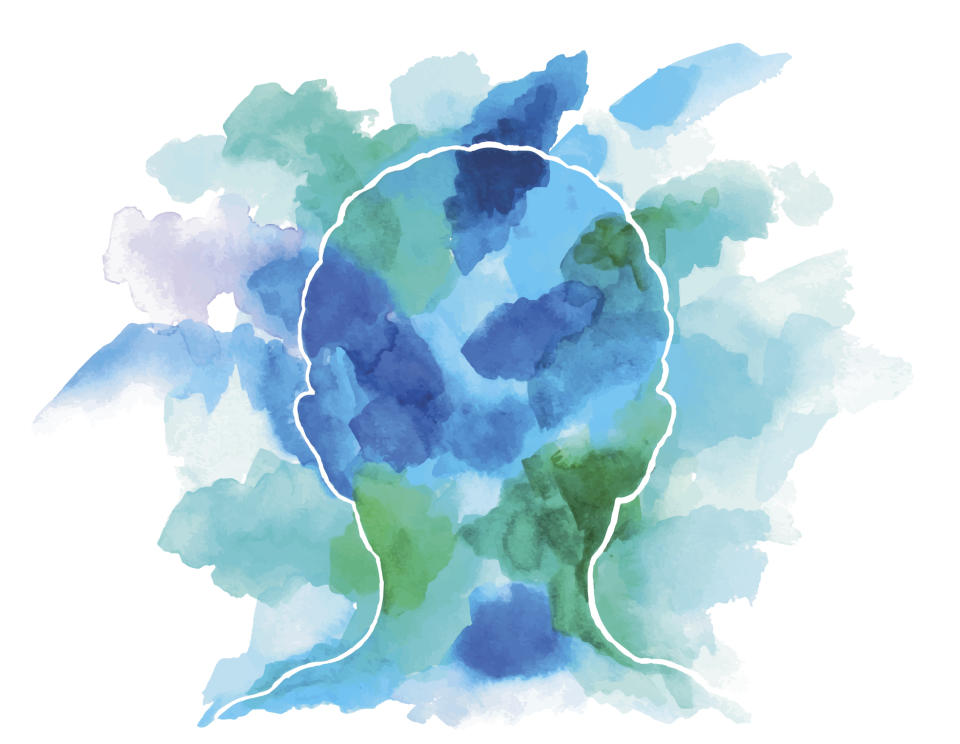7 surprising symptoms of the menopause

When it comes to spotting the signs of menopause, you may be expecting hot flushes, irregular periods and the prospect of feeling weepy at news reports and cat food adverts. But during the perimenopause – the years running up to menopause, when your ovaries completely stop releasing eggs – there are some other signs to look out for...
1. Dry skin, hair and eyes
Have your eyes and skin been feeling dry and itchy? "During the menopause, collagen production, which is what keeps skin supple, hair soft and eyes moist, starts to decline," says Kathy Abernathy, a specialist menopause nurse and Chair Elect of the British Menopause Society. "It's worth getting a richer moisturiser or conditioner and getting over-the-counter eye drops if you're affected. You could also take omega-7 supplements (derived from sea buckthorn) as they can help ease eye dryness."
2. Joint pain
Stiff and aching joints can be another sign of menopause. "The drop in oestrogen which happens in the run up to the menopause can cause achiness," says Kathy. "You may find it's worse in the morning. Exercise that helps to maintain joint flexibility, for example Pilates or yoga, could help here."
3. Intimate dryness
While it's not exactly polite dinner party conversation, vaginal dryness is a significant problem that many women encounter during the perimenopause. "Lubricants will help to tackle this issue, but I would really recommend seeking help from your GP if it's affecting you badly," says Kathy. The doctor may prescribe vaginal oestrogen, which is inserted as a pessary, ring or cream, and helps to boost oestrogen levels and ease dryness.
4. Brain fog
Confusion, memory problems and general absent-mindedness could increase in the run up to menopause. In fact, a study by researchers from the University of Rochester in New York tested women aged 40 to 60 (a typical peri- and menopausal age bracket) and found many had problems with their 'working memory' – the ability to take in new information and manipulate it.
"It's caused by hormones changes and also the fact that you may be struggling to sleep comfortably through the night if you're having hot flushes," says Kathy. Make use of lists, phone reminders and diaries to keep on track of memory problems.

5. Acne
You thought your years of teenage spots were over, and then suddenly they reappear. Once again, it's those pesky hormones that are the culprit. "A change in the ratio of testosterone in the body causes the skin's sebaceous glands to produce excess sebum, an oily substance which blocks pores and can cause spots," says Kathy. Acne can appear along the jaw line, chest or back.
6. Anxiety and palpitations
The prospect of a hot flush can be uncomfortable, and sometimes, they can even be preceded by anxiety and heart palpitations. "You may feel a heightened sense of emotion as the flush starts, which can cause anxiety, and even occasional panic attacks if it's not recognised as such," says Kathy. It's really important to try to stay calm when you feel a flush coming, take deep breaths and sip iced water to help cool you if possible.
7. Overactive bladder
You often associate needing to pee more frequently with pregnancy, but it can also affect you during the perimenopause and menopause. "The bladder needs oestrogen to function properly, so when it starts to decrease during the menopause, it can increase the urge to go," says Kathy.
Plus, the pelvic floor muscles, which help to control the bladder, can weaken and lead to incontinence. If you feel worried or self-conscious, have smaller drinks more regularly, and consider using some discrete pads to protect underwear.
You Might Also Like


